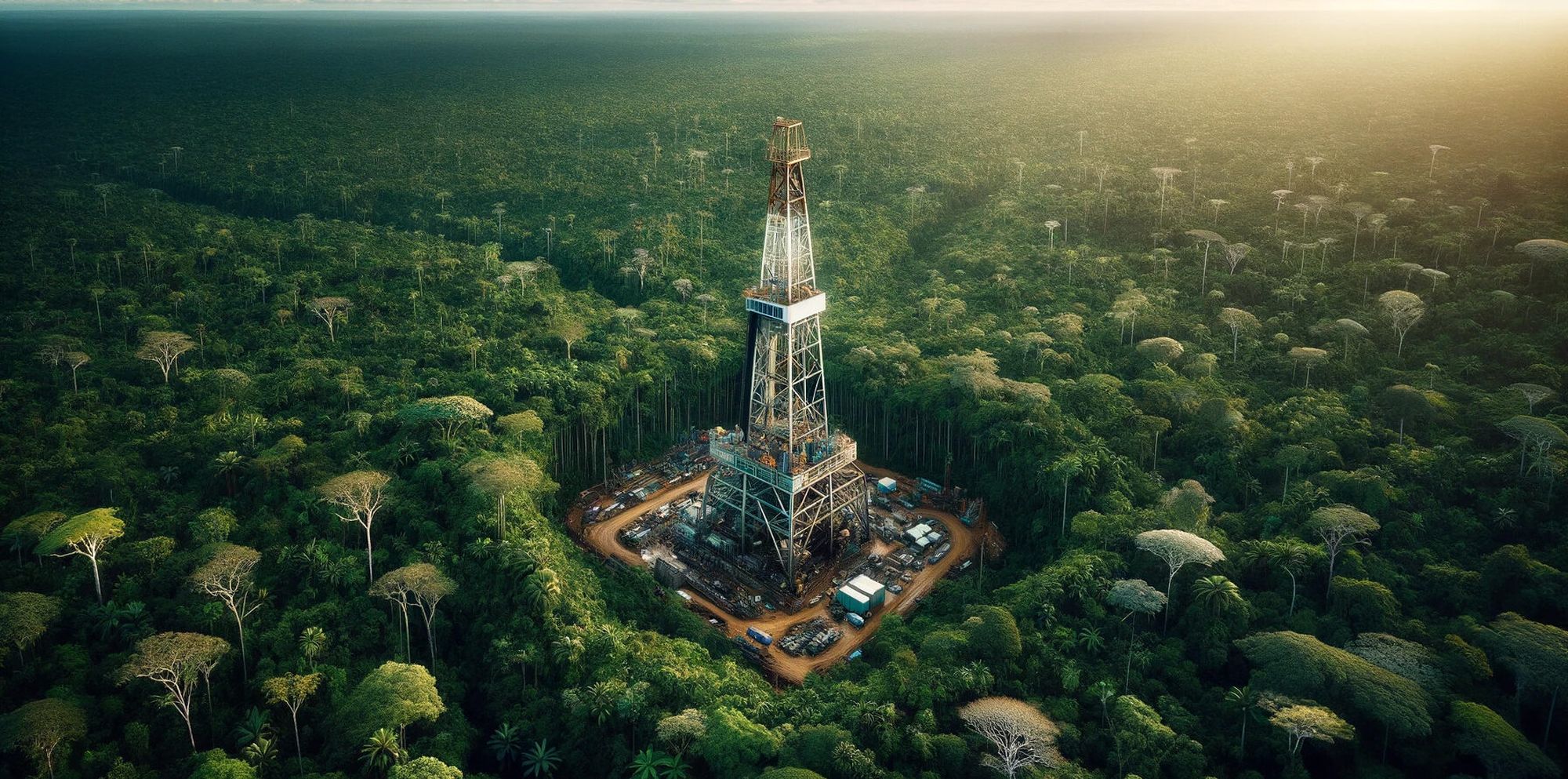Brazil’s massive 13 December 2023 auction of oil and gas drilling rights betrays a glaring hypocrisy in view of the country’s discourse on climate change. The fossil fuels to be extracted would be a climate-change “bomb”. They also signal no intent to end extraction soon.
The auctioned areas impact Indigenous and other traditional peoples, Amazonian protected areas for biodiversity, coral reefs and marine biodiversity hotspots. Areas still “under study” for future auctions include the vital Trans-Purus rainforest area in Brazil’s state of Amazonas.
Brazil’s President Lula needs to control his anti-environmental ministers and replace some of them, such as the minister of mines and energy.
One day after the end of the COP28 climate summit, Brazil’s National Petroleum Agency (ANP) conducted what is known as the “End-of-the-World” auction, selling off drilling rights in 602 new exploration areas, including 21 in the Amazon River basin.
More than half (12 blocks) are located in areas that directly impact up to 20 Indigenous lands and the buffer zones of at least 15 conservation units (protected areas for biodiversity.
Also included are blocks affecting demarcated quilombola territories, which are areas inhabited by the descendants of Africans who escaped from slavery in past centuries; quilombolas have the same rights as Indigenous peoples under Brazil’s constitution.
The offering also included environmentally sensitive areas for offshore drilling and coral reef areas all along the coast of Brazil. Two offshore areas offered received no bids, apparently because their fame would make them a reputational risk: the area around the Fernando de Neronha islands and the Atol das Rocas.
Areas “under study,” not included in the present auction, include the first part of the disastrous “Solimões Sedimentary Area” oil and gas project. This project would drive road building and deforestation in the vast Tran-Purus area in the western half of the state of Amazonas.
The timing of the auction certainly shows the complete disconnect between the Lula administration’s discourse on the environment and the most consequential concrete actions the government is taking. It is certainly coincidental that the auction is one day after COP28, perhaps suggesting that it was postponed slightly so as not to add one more scandalous event during the COP itself.
However, the President was OK with Brazil joining the OPEC+ group of oil-exporting countries during the event, drawing attention to the same type of hypocrisy and earning Brazil a “fossil-of-the-day” prize at COP28.
The carbon emissions from the oil to be pumped and burned represent a “bomb” for climate change. The auction also signals that the Brazilian government and the companies investing in the drilling blocks, including Brazil’s government oil company (Petrobras), are not planning to end fossil fuel extraction within the next few years during which this needs to occur to prevent crossing a tipping point leading to uncontrollable global warming.
The impacts of oil extraction in indigenous areas and areas with other traditional peoples is often catastrophic, as shown by the experience in Peru and Ecuador. In addition to the social and health impacts of contact with the workers in the oil projects, leaks and spills are common, affecting the fish and other resources that support the traditional people.
The auction is shameful in all respects, including the obvious inconsistency with Brazil’s statements at COP28. Internally, it shows once again that only the Ministry of the Environment is committed to containing environmental damage, while the rest of the government feels free to implement the most damaging projects, as by building Highway BR-319 and other roads opening Amazon forest to deforestation, legalizing illegal land claims in government land (one of the main drivers of deforestation), authorizing over 500 dangerous agricultural chemicals, and initiating and expanding oil extraction projects including both those in areas that damage tropical forest and indigenous peoples and offshore oil extraction in the most biologically diverse and fragile areas and at depths at which leaks cannot be contained.
President Lula needs to control the anti-environmental tendencies of his ministers, and some, such as the minister of mines and energy, need to be replaced immediately.
This article appeared originally in Mongabay. An earlier version of this text was published in Portuguese by Amazônia Real.





